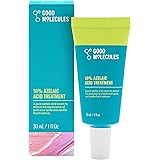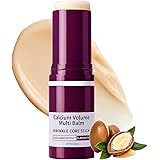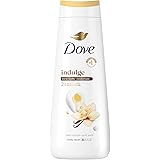Revolutionary AI Transforms Skincare: Is Your Smart Skincare Routine Smarter Than You? 2025
Smart skincare technology is transforming how we approach our daily beauty routines, and artificial intelligence in skincare is no longer science fiction. From AI powered skin analysis apps that can detect wrinkles before your mirror can, to smart skincare devices that adjust treatments based on real time skin data, the beauty industry has embraced technology like never before. Smart skincare routines now incorporate machine learning algorithms, biotech ingredients, and personalized skincare solutions that adapt to your skin’s changing needs throughout the day, week, and seasons.
This technological revolution in beauty represents more than just fancy gadgets and apps. Smart skincare represents a fundamental shift toward data driven beauty decisions, where your skincare routine becomes as personalized as your playlist or news feed. Instead of following generic advice from magazines or hoping that expensive creams work for your unique skin type, smart skincare technology analyzes your individual skin characteristics, environmental factors, hormonal changes, and lifestyle patterns to create truly customized treatment plans.
The global smart skincare market is projected to reach $2.7 billion by 2025, driven by consumers who demand more than one size fits all solutions. Today’s beauty enthusiasts want to understand exactly why their skin behaves the way it does and what specific actions will create the most dramatic improvements. This desire for personalization has sparked innovations in everything from AI powered ingredient recommendations to smart mirrors that track your skin’s progress over time.
Understanding Skin Cycling and How AI Apps Are Optimizing Your Routine
Skin cycling has become the latest buzzword in personalized skincare, representing a strategic approach to using active ingredients in rotating cycles rather than applying everything at once. This method involves alternating between different types of treatments throughout the week, allowing your skin to recover between intensive applications while maximizing the benefits of each active ingredient. Smart skincare apps have revolutionized skin cycling by using artificial intelligence to determine the optimal rotation schedule for your specific skin type and concerns.
Traditional skin cycling typically follows a four night rotation: exfoliation night with chemical exfoliants like glycolic acid or salicylic acid, retinoid night with vitamin A derivatives, recovery night with gentle, nourishing ingredients, and then repeat. However, this generic approach doesn’t account for individual skin sensitivity, environmental factors, seasonal changes, or how your skin responds to specific ingredient combinations.
AI powered skincare apps analyze multiple data points to create personalized skin cycling schedules. These smart skincare platforms consider your skin type, current products, climate conditions, stress levels, hormonal fluctuations, and even sleep patterns to determine when your skin is most receptive to active treatments. The artificial intelligence learns from your skin’s responses, adjusting the cycling schedule in real time based on how your skin reacts to different ingredients and treatments.
For example, the app might recommend extending recovery nights during periods of high stress or environmental pollution, when your skin barrier needs extra support. During winter months, the AI might suggest reducing exfoliation frequency and increasing moisturizing treatments. If you’re experiencing hormonal breakouts, the algorithm might temporarily intensify acne fighting ingredients while ensuring proper barrier repair between treatments.
Smart skincare apps also excel at preventing ingredient interactions that could cause irritation or reduce efficacy. The AI databases contain extensive information about which ingredients work synergistically and which combinations should be avoided. This prevents common mistakes like using vitamin C and retinol together, or layering multiple acids that could compromise your skin barrier.
Some advanced platforms integrate with smart home devices and wearables to gather additional data points. They might track your sleep quality, stress levels measured through heart rate variability, or environmental factors like air quality and UV exposure. This comprehensive data collection allows for incredibly precise skin cycling recommendations that adapt to your lifestyle and environment.
The beauty of AI optimized skin cycling lies in its ability to learn and improve over time. As you input feedback about how your skin looks and feels, the algorithms become more accurate at predicting what your skin needs. This continuous learning process means your skincare routine becomes more effective as the AI gathers more data about your unique skin patterns.

Top Apps and Tools for Smart Skincare Analysis
The smart skincare app market has exploded with innovative solutions that bring dermatologist level analysis to your smartphone. These artificial intelligence powered tools use advanced image recognition, machine learning algorithms, and vast databases of skin conditions to provide detailed assessments of your skin health and personalized treatment recommendations.
YUDAI Skin Analysis stands out as one of the most comprehensive smart skincare platforms available. This AI powered app uses your smartphone camera to perform detailed skin scans, analyzing everything from pore size and oil production to fine lines and pigmentation irregularities. The app’s artificial intelligence compares your skin to thousands of reference images to identify specific concerns and track changes over time. YUDAI creates personalized skincare routines based on your analysis results and continuously updates recommendations as your skin evolves.
The app’s strength lies in its ability to detect subtle changes that might not be visible to the naked eye. It can identify early signs of aging, sun damage, or skin conditions before they become obvious problems. This early detection capability allows for preventive treatments that are much more effective than reactive approaches.
SkinVision focuses specifically on skin cancer detection and mole monitoring, using artificial intelligence to assess suspicious spots and recommend when to seek professional medical attention. While not a comprehensive skincare routine app, SkinVision represents the life saving potential of smart skincare technology. The app has been clinically validated and works in partnership with dermatologists to provide reliable skin cancer screening.
Proven Skincare takes a different approach by combining AI analysis with custom product creation. After completing a detailed questionnaire and uploading photos, their artificial intelligence algorithm analyzes over 20,000 skincare ingredients and 8 million customer reviews to formulate personalized products specifically for your skin. This represents the ultimate in smart skincare customization, where the products themselves are created based on AI recommendations.
Neutrogena Skin360 app works in conjunction with the brand’s SkinScanner device to provide professional grade skin analysis at home. The system measures skin moisture, smoothness, firmness, fine lines, dark spots, and pore size with clinical accuracy. The artificial intelligence creates a comprehensive skin profile and tracks improvements over time, making it easier to see which treatments are working.
Mirror AI apps are becoming increasingly sophisticated, with platforms like HiMirror offering smart mirrors that analyze your skin every time you look at your reflection. These devices track changes in your complexion over weeks and months, providing detailed reports about your skin’s progress and recommendations for adjusting your routine.
For those interested in ingredient analysis, Think Dirty and YUKA apps help decode product labels and identify potentially harmful ingredients. While not specifically AI powered skincare analysis tools, these smart skincare apps complement your routine by ensuring the products you choose align with your health and safety preferences.
The most effective approach often involves using multiple apps and tools together. You might use a comprehensive analysis app like YUDAI for overall skin assessment, combine it with ingredient checking apps for product selection, and supplement with specialized tools for specific concerns like sun damage or acne monitoring.
When choosing smart skincare apps, look for platforms that have been clinically validated, offer regular updates to their AI algorithms, and provide clear explanations of how their artificial intelligence makes recommendations. The best apps also integrate with your existing skincare products rather than requiring complete routine overhauls.
GODA for Her Perfume and Silk Body Oil for Women – Perfect Bundle for Your Daily Stunning Beauty and Attraction
$59.99 (as of January 4, 2026 09:51 GMT -04:00 – More infoProduct prices and availability are accurate as of the date/time indicated and are subject to change. Any price and availability information displayed on [relevant Amazon Site(s), as applicable] at the time of purchase will apply to the purchase of this product.)eos Shea Better Cashmere Body Wash, Vanilla Cashmere, Moisturizing, pH Balanced Body Wash, Creamy Gel Formula, Paraben & Phthalate Free, Sensitive Skin, 16 fl oz
$9.98 (as of January 2, 2026 09:46 GMT -04:00 – More infoProduct prices and availability are accurate as of the date/time indicated and are subject to change. Any price and availability information displayed on [relevant Amazon Site(s), as applicable] at the time of purchase will apply to the purchase of this product.)Biotech Ingredients: The Future of Smart Skincare Innovation
Biotech ingredients represent the cutting edge of smart skincare innovation, where laboratory science meets nature to create highly effective, sustainable, and precisely targeted skincare solutions. These artificial intelligence designed molecules are created using biotechnology processes that harness the power of microorganisms, enzymes, and cellular biology to produce ingredients that are often more potent and environmentally friendly than their traditional counterparts.
Alguronic Acid has emerged as one of the most promising biotech ingredients in smart skincare formulations. This compound is derived from algae through biotechnology processes and has been shown to significantly improve skin regeneration and repair. Unlike traditional anti aging ingredients, alguronic acid works at the cellular level to boost the skin’s natural renewal processes. Clinical studies have demonstrated that alguronic acid can increase skin cell turnover by up to 50% while simultaneously strengthening the skin barrier and improving moisture retention.
What makes alguronic acid particularly exciting for smart skincare applications is its adaptogenic properties. The ingredient seems to respond to individual skin needs, providing more intensive repair for damaged skin while offering gentle maintenance for healthy skin. This responsive behavior makes it ideal for AI powered skincare routines that need to adapt to changing skin conditions.
Bakuchiol represents another breakthrough in biotech skincare ingredients. This plant derived compound provides similar benefits to retinol without the associated irritation, making it perfect for sensitive skin types and pregnant women who cannot use traditional vitamin A derivatives. Biotech extraction and purification processes have made bakuchiol more stable and effective than ever before, with some formulations showing comparable results to prescription retinoids.
Synthetic Biology Peptides are revolutionizing anti aging skincare through precision engineering. These lab created peptides are designed to target specific aging pathways with unprecedented accuracy. For example, some peptides specifically stimulate collagen production in areas where it has decreased, while others focus on improving skin elasticity or reducing inflammation. The precision of these biotech ingredients makes them ideal for smart skincare routines that need to address multiple concerns simultaneously.
Fermented Ingredients have gained tremendous popularity in smart skincare formulations due to their enhanced bioavailability and gentle action. Biotechnology processes ferment traditional skincare ingredients like green tea, rice water, and various botanical extracts to break down molecules into smaller, more easily absorbed forms. Fermented hyaluronic acid, for instance, penetrates deeper into the skin than traditional hyaluronic acid, providing more intensive hydration.
Microbiome Supporting Ingredients represent a fascinating area of biotech skincare innovation. These ingredients are designed to support the skin’s natural microbiome, the ecosystem of beneficial bacteria that protects and nourishes healthy skin. Prebiotics, probiotics, and postbiotics created through biotechnology processes help maintain optimal skin pH, reduce inflammation, and strengthen the skin’s natural defense systems.
Growth Factors produced through biotechnology offer powerful anti aging benefits without the ethical concerns associated with animal derived growth factors. These lab created proteins stimulate cellular repair and regeneration, helping to reverse signs of aging at the molecular level. When combined with AI analysis that can identify the specific growth factors your skin needs most, these ingredients become incredibly effective tools for personalized anti aging treatments.
The sustainability aspect of biotech ingredients cannot be overlooked in the context of smart skincare. Many of these ingredients require fewer natural resources to produce than traditional botanical extracts, and they can be created in controlled laboratory environments without depleting natural ecosystems. This aligns perfectly with the values of environmentally conscious consumers who want effective skincare without environmental compromise.
Encapsulation Technology has also benefited from biotechnology advances, allowing for time released delivery of active ingredients. Smart skincare formulations can now deliver ingredients exactly when and where they’re needed most, maximizing efficacy while minimizing irritation. Some encapsulated ingredients respond to pH changes, skin temperature, or specific enzymes, creating truly responsive skincare treatments.
The integration of biotech ingredients with artificial intelligence creates exciting possibilities for the future of personalized skincare. AI algorithms can analyze your skin’s specific needs and recommend combinations of biotech ingredients that work synergistically to address your unique concerns. As our understanding of skin biology improves and biotechnology advances, we can expect even more targeted and effective ingredients to emerge.
Good Molecules 10% Azelaic Acid Treatment for Face – Soothing Formula for Facial Redness & Uneven Tone – Brightens Dark Spots & Refines Texture – Vegan & Fragrance-Free Skincare (30ml / 1.01 fl oz.)
$12.00 (as of January 4, 2026 09:51 GMT -04:00 – More infoProduct prices and availability are accurate as of the date/time indicated and are subject to change. Any price and availability information displayed on [relevant Amazon Site(s), as applicable] at the time of purchase will apply to the purchase of this product.)Calcium Multi Balm Stick for Face, Eyes, Lips & Neck – Korean Collagen Moisturizing Balm with Vitamin D & Shea Butter – Firming, Hydrating & Skin Barrier Care Stick for All Skin Types
$14.98 (as of January 4, 2026 09:51 GMT -04:00 – More infoProduct prices and availability are accurate as of the date/time indicated and are subject to change. Any price and availability information displayed on [relevant Amazon Site(s), as applicable] at the time of purchase will apply to the purchase of this product.)Smart Skincare Technology: Weighing the Pros and Cons
Smart skincare technology offers unprecedented personalization and scientific precision, but like any revolutionary approach, it comes with both significant advantages and important limitations that consumers should carefully consider before fully embracing AI powered beauty routines.
The Compelling Advantages of Smart Skincare
Unprecedented Personalization stands as the most significant benefit of smart skincare technology. Traditional skincare advice has always been frustratingly generic, with broad categories like “oily skin” or “sensitive skin” providing little guidance for the infinite variations in individual skin characteristics. Artificial intelligence in skincare analyzes hundreds of variables simultaneously, creating truly personalized recommendations that account for your skin type, environmental factors, lifestyle patterns, genetic predispositions, and even hormonal fluctuations.
Smart skincare apps can detect subtle patterns that would be impossible for humans to identify. They might notice that your skin becomes more sensitive on days when you sleep poorly, or that certain weather conditions trigger specific skin reactions. This level of detailed analysis enables precisely targeted treatments that address your skin’s actual needs rather than perceived problems.
Early Problem Detection represents another crucial advantage of AI powered skincare analysis. Many skin issues develop gradually over months or years before becoming visually apparent. Smart skincare technology can identify early signs of sun damage, aging, or skin conditions when they’re still in treatable stages. This preventive approach is far more effective and less expensive than waiting until problems become severe enough to require professional intervention.

Objective Progress Tracking eliminates the guesswork from skincare routine evaluation. Human perception is notoriously unreliable when assessing gradual changes in appearance, and we often convince ourselves that expensive products are working simply because we want them to work. Smart skincare apps provide quantitative measurements of improvements in skin texture, tone, hydration, and other parameters, giving you clear evidence of which treatments are actually effective.
Cost Optimization through artificial intelligence recommendations can save significant money by helping you avoid products that won’t work for your skin type. Smart skincare platforms analyze ingredient databases to identify the most effective formulations for your specific needs, preventing costly trial and error purchases. Some apps can even identify lower cost alternatives to expensive products when they contain similar active ingredients in comparable concentrations.
Time Efficiency improves dramatically when AI handles the complex task of coordinating multiple skincare products and treatments. Smart skincare apps can schedule optimal application times, prevent ingredient conflicts, and streamline routines for maximum effectiveness with minimum time investment.
The Important Limitations and Concerns
Technology Limitations remain significant in current smart skincare applications. Smartphone cameras and apps, while increasingly sophisticated, cannot match the diagnostic capabilities of professional dermatological equipment. Lighting conditions, camera quality, and user technique all influence analysis accuracy. Some skin conditions require in person examination by trained professionals, and relying solely on app recommendations for serious skin concerns could delay necessary medical treatment.
Data Privacy Concerns are particularly relevant for smart skincare apps that collect detailed photos and personal health information. Users should carefully review privacy policies and understand how their data will be stored, shared, and potentially sold to third parties. Some apps may use your skin analysis data for marketing purposes or share information with cosmetics companies, raising questions about informed consent and data ownership.
Algorithm Bias represents a serious limitation in many AI powered skincare platforms. Most artificial intelligence systems are trained primarily on data from lighter skin tones, potentially leading to less accurate recommendations for people with darker complexions. This bias can result in ineffective or even harmful product recommendations for users whose skin characteristics differ from the training data demographics.
Over Reliance on Technology can lead to diminished understanding of your own skin’s needs and responses. While smart skincare technology provides valuable insights, developing personal awareness of how your skin reacts to different factors remains important. Technology should complement rather than replace your ability to assess and respond to your skin’s changing needs.
Cost Considerations extend beyond app subscriptions to include recommended products and devices. Many smart skincare platforms generate revenue by recommending specific products or partnering with particular brands. Users should maintain awareness of potential conflicts of interest and remember that expensive products recommended by AI are not automatically more effective than affordable alternatives.
Scientific Validation varies significantly among different smart skincare platforms. While some apps have undergone clinical testing and peer reviewed validation, others make claims based on limited or proprietary research. Users should look for platforms that provide transparent information about their scientific methodology and validation processes.

Making Smart Decisions About Smart Skincare
The most effective approach to smart skincare technology involves treating it as a powerful tool rather than a complete solution. Use AI powered analysis and recommendations as starting points for developing your routine, but maintain critical thinking about suggestions and continue monitoring your skin’s responses. Combine technology insights with professional dermatological advice for serious skin concerns, and remember that consistency with basic skincare principles often matters more than having the most advanced products or apps.
Smart skincare technology works best when integrated thoughtfully into a comprehensive approach to skin health that includes proper sun protection, healthy lifestyle choices, and appropriate professional care when needed. The goal should be leveraging technology to enhance your understanding and care of your skin rather than replacing human judgment and professional expertise entirely.
The Future of Smart Skincare: What’s Coming Next
Smart skincare technology continues evolving rapidly, with emerging innovations promising even more sophisticated and effective approaches to personalized beauty care. Artificial intelligence capabilities are expanding beyond simple product recommendations to encompass predictive modeling, real time environmental adaptation, and integration with broader health monitoring systems.
Predictive Skincare Modeling represents the next frontier in AI powered beauty technology. Advanced algorithms are being developed that can predict how your skin will age based on genetic factors, lifestyle patterns, environmental exposure, and current skin condition. This predictive capability will enable truly preventive skincare approaches, where treatments begin years before problems become visible.
Integration with Wearable Technology is creating opportunities for continuous skin health monitoring. Smart watches and fitness trackers are beginning to include sensors that monitor UV exposure, stress levels, hydration status, and other factors that influence skin health. This constant data collection will enable smart skincare apps to make real time adjustments to your routine based on daily activities and environmental conditions.
Advanced Ingredient Matching using artificial intelligence will become increasingly sophisticated as databases expand and algorithms improve. Future smart skincare platforms will be able to analyze thousands of ingredient combinations and predict their interactions with unprecedented accuracy, creating truly optimized formulations for individual users.
Telemedicine Integration is bridging the gap between smart skincare apps and professional dermatological care. Some platforms are beginning to offer direct consultation with licensed dermatologists who can review AI analysis results and provide professional guidance. This hybrid approach combines the convenience and personalization of smart skincare technology with the expertise and diagnostic capabilities of medical professionals.
The smart skincare revolution is just beginning, with artificial intelligence and biotechnology innovations promising to make personalized, effective skincare more accessible than ever before. As these technologies continue developing and improving, the line between professional skincare treatments and at home care will continue blurring, empowering consumers to achieve professional level results with smart, data driven approaches to beauty and skin health.
Ready to upgrade to smart skincare? Download our comprehensive Smart Skincare Tracker and App Comparison Chart to find the perfect AI powered tools for your unique skin needs. This free resource includes detailed comparisons of the top smart skincare apps, a monthly skin tracking template, and expert tips for integrating technology into your routine effectively.
Download Your Smart Skincare Tracker Now!
Want to dive deeper into smart skincare technology? Check out these helpful resources: American Academy of Dermatology for professional skincare guidance, FDA Cosmetics Safety for ingredient safety information, and International Society of Cosmetic Dermatology for the latest research in cosmetic science. Have questions about specific smart skincare apps or ingredients? Drop them in the comments below and we’ll help you navigate the exciting world of AI powered beauty!












